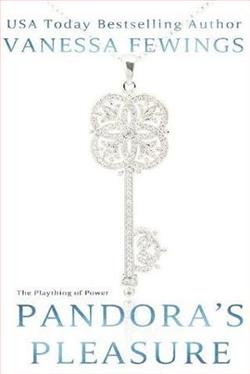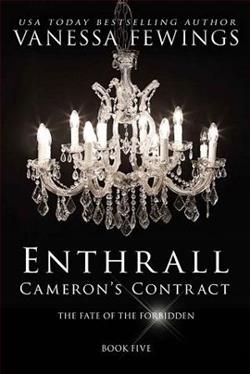Page 41 of Royal Love
“Backing up,” our driver announces calmly, but as the Range Rover begins to reverse, the rear view shows more protesters moving in behind us.
“They’re boxing us in,” Parker says, his voice professionally even despite the implication. He’s back on his phone, urgency evident in his clipped sentences.
Beside me, Tristan has gone completely still. His hand, still holding mine, has turned ice cold.
“It’s okay,” I tell him, though my heart hammers against my ribs. “Security will be here any minute.”
But Tristan doesn’t seem to hear me. His eyes have taken on a vacant quality that sends a chill down my spine. I’ve seen this look only once before, when fireworks at the National Day celebration triggered something in him that took hours to subside.
“Tristan,” I say more firmly, squeezing his hand. “Look at me.”
The crowd is closing in now, faces pressed against the windows, signs thumping against metal and glass. Our vehicle’s bulletproof design suddenly seems both reassuring and claustrophobic.
“Ambush,” Tristan whispers, so softly I almost miss it. His breathing has become shallow, rapid. “Just like Northpoint. They waited until the convoy was surrounded.”
My blood runs cold. Northpoint—the worst massacre of the Northern Conflict, where Tristan’s unit lost seventeen men in a single afternoon. He rarely speaks of it, but I know from his nightmares that the memories remain vivid.
“Tristan, we’re in the capital,” I say, keeping my voice steady despite the fear building in my chest. “This is a protest, not combat. Look at me, please.”
His eyes lock onto mine, but I’m not sure he’s seeing me. His free hand has moved instinctively to where a sidearm would be if he were in combat gear rather than formal dress.
The baby chooses this moment to deliver a particularly strong kick, making me gasp involuntarily. The sound seemsto penetrate whatever fog has enveloped Tristan. His focus sharpens, concern replacing the distant terror in his eyes.
“Lia,” he says, my nickname a lifeline pulling him back. “Are you hurt?”
“We’re fine,” I assure him, deliberately placing his hand on my belly where our child continues its gymnastic routine. “We’re both fine. Just scared.”
The contact seems to ground him. I watch as awareness returns fully, his military training reasserting itself as he assesses our situation with renewed clarity.
“Parker,” he calls to the front seat. “Status?”
“Palace security is two minutes out,” Parker reports. “Metropolitan police are establishing a perimeter. The protesters appear to be unarmed, just agitated.”
Through the window, I can make out their chants now. Not threats against us personally, but anger about the war, demands for accountability, calls for reparations to the northern provinces.
Tristan’s arm wraps around my shoulders, drawing me against him in a protective gesture that feels more instinctive than calculated.
“I’m sorry,” he murmurs against my hair. “I was…somewhere else for a moment.”
“I know,” I whisper back. “But you came back to me. You always do.”
The distant wail of sirens grows louder, and the crowd’s enthusiasm noticeably dampens. Within minutes, uniformed officers create a pathway through the protesters, and our vehicle begins moving slowly toward the palace.
As we pass through the dissipating crowd, I catch glimpses of their faces—angry, yes, but also wounded, grieving, seeking acknowledgment of losses that no gala or foundation can trulyaddress. These are Tristan’s subjects too, their pain as valid as the children we just honored.
“We need to listen to them,” I say quietly.
Tristan nods, his composure fully restored though his arm remains firmly around me. “Yes,” he agrees. “Not tonight, but soon. They deserve that much.”
By the time we reach the palace gates, my feet have swollen painfully in my discarded shoes, and exhaustion weighs on me like a physical burden. But as we’re escorted through private corridors to our chambers, I find myself reflecting on the contrast of the evening—the glittering ballroom versus the raw emotion of the streets.
This is the complexity of loving a king, of being a queen. The beautiful and the terrible exist side by side, the formal duties and the human costs, the public expectation and the private struggles.
In our bedroom, as Shannon helps me out of my gown and Tristan confers with security about tomorrow’s response, I catch his eye across the room. Despite everything—the flashback, the protesters, the weight of responsibilities that never lightens—he smiles at me with such tenderness that my breath catches.
Later, as we lie together in the darkness, his hand resting protectively over our child, I realize that this is what makes our love story real. Not the fairy tale trappings or royal titles, but the way we anchor each other through storms, the way we recognize each other’s fractures and hold them gently.
“Do you ever wish for a simpler life?” I ask into the quiet.















